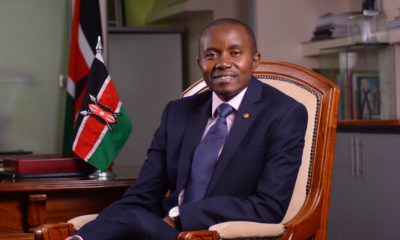

New research by two Mozilla Fellows reveals how malicious, coordinated, and inauthentic attacks on Twitter are undermining Kenyan civil society Meanwhile, Twitter is doing little to...


On May 18 of this year, the insidious hashtag #AnarchistJudges appeared on Kenyan Twitter timelines. Apparently driven by a number of faceless bots, and retweeted by...


Secretary General of the doctors union, KMPDU, Dr Ouma Oluga has fended DP Ruto’s man, former Kakamega Senator Boni Khalwale after he his stone-throwing skills were...


Kenyans on Twitter have thrown TCS CEO Nancy Macharia in a furnace and she, according to KOT, she’s next on the line of the cut, drop...


An audio confirmation that one concerned Kenyan on Twitter has since shared on Twitter account of Mnur Ferruz has recorded a safaricom call center customer service...


Jubilee is indeed committed to not only break apart this country with foreign public debts but also making sure the youths never gets a chance to...


Kenyans on Twitter have been running multiple accounts and the most viral of them, are those with the names of most prominent Kenyan, mostly who are...


Mixed reactions from Kenyans on Twitter popularly branded as KOT after the Kenya Navy led 2 weeks operation of retrieving the plunged vehicle was a success...


Is it Terror-tich or Toroitich? Mixed reaction from Kenyans as the government thorough Fred Matiangi announces that 10th of October is a public holiday and not...


As the country prepares to completely, according to CBK, do away with Old a thousand notes. Netizens have comically rubbished Central Bank Of Kenya’s tweet about...